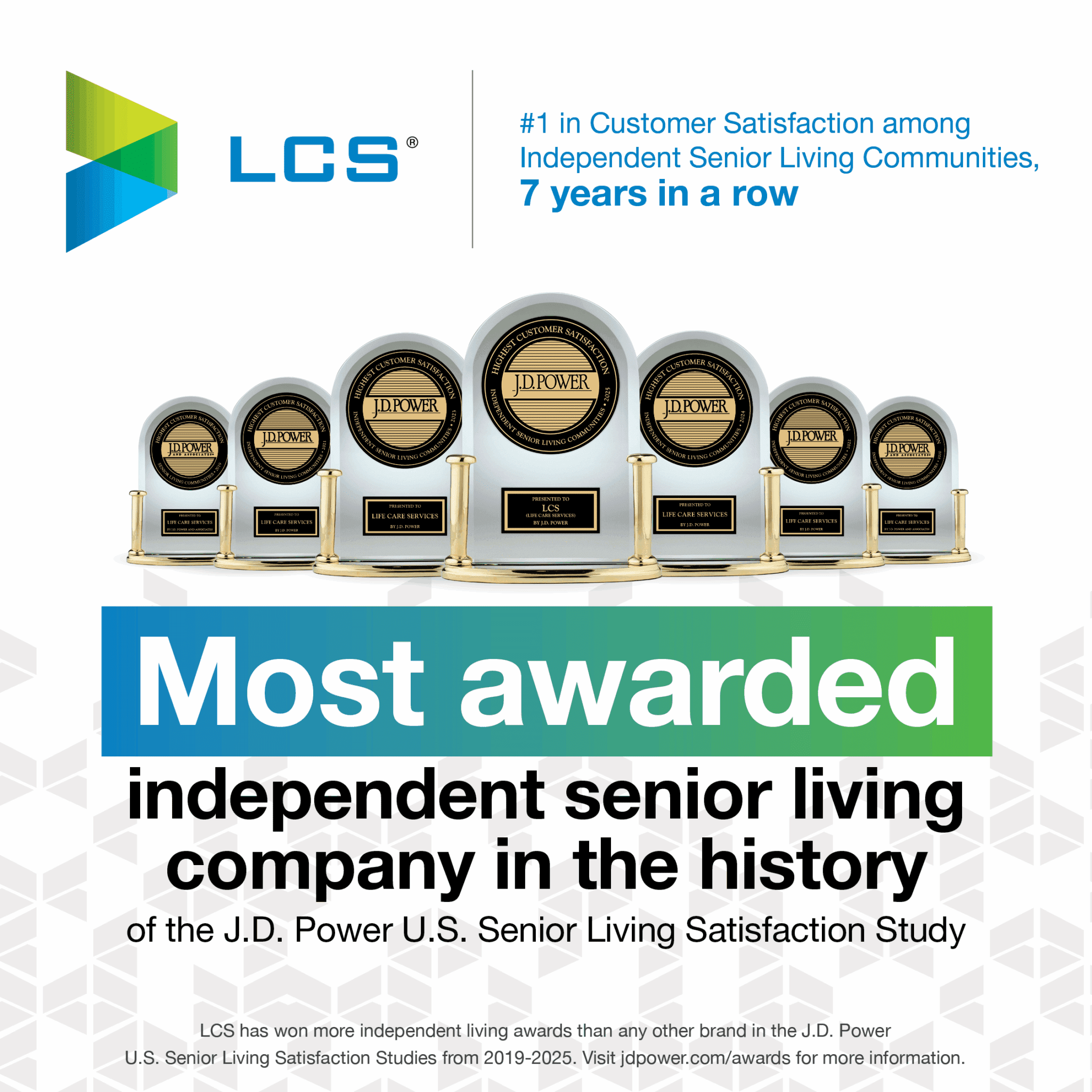
Contact
All-inclusive Guide to CCRC Contract Types: What to Know Before You Commit
Deciding to move to a Continuing Care Retirement Community (CCRC) is an exciting milestone. It’s an opportunity to embrace an engaging lifestyle, maintain independence, and access high-quality health care as your needs change. However, before deciding to move, you should learn about the different CCRC contract types.
But along with the excitement come important financial and care considerations. Understanding the different CCRC contract types helps seniors and their families select an option that aligns with lifestyle, budget, and long-term health care needs.
In this guide, we’ll explain what a CCRC is and break down the four major contract types: Type A (Life Care), Type B (Modified), the option offered at StoneRidge, Type C (Fee-for-Service), and rental contracts.
You’ll learn how residents pay for future care—whether through discounted rates, bundled services or paying the full market rate—and which option aligns best with your retirement vision.
What Is a CCRC?
A Continuing Care Retirement Community, also referred to as a Life Plan Community, is a residential community designed for seniors that offers a continuum of care, all in one location.
This means residents can transition seamlessly between levels of care as their needs change—from independent living to assisted living, assistance-in-living, memory care, rehabilitation or skilled nursing—without having to leave the community.
Key benefits of CCRCs include:
- Stability and peace of mind: Residents know that future health care needs are anticipated and accessible.
- Comprehensive services: On-site health care allows residents to maintain independence while having immediate support available if their needs evolve.
- Maintenance-free living: Residents can enjoy a vibrant social, recreational, and wellness lifestyle without worrying about home upkeep.
- Predictable financial planning: Knowing long-term care options helps seniors and families plan confidently for the future.
CCRCs are designed for seniors who want to age in place with a sense of security, while also enjoying the active lifestyle amenities of a dynamic community.
Understanding Different CCRC Contract Types
When considering a CCRC, understanding CCRC contract types is essential. Each contract type balances entry fees, monthly fees, and health care coverage differently, which affects both your current lifestyle and future care options.
Type A: Life Care Contracts
Type A contracts, often called Life Care contracts, provide the most comprehensive coverage. Type A contracts require a higher entry fee and higher monthly service fees, but include almost all future health care services.
- How residents pay: Residents make an up-front entry fee and predictable monthly fees that cover nearly all future care needs.
- Health care services: This includes unlimited access to services such as assisted living, assistance-in-living, skilled nursing, rehabilitation or memory care. Residents face little to no increase in costs if their care needs change over time.
- Ideal for seniors who value predictable costs and want the ultimate peace of mind knowing that virtually all health care needs are covered.
Type A contracts are popular for seniors who prefer to lock in rates early, avoiding future market fluctuations in health care costs. This structure is especially reassuring for those who anticipate needing higher levels of care as they age.
Type B: Modified Contracts
A Type B contract, also called a Modified contract, is a middle-ground option for seniors seeking both flexibility and security. It combines a moderate entry fee with monthly service fees, including some health care services at no additional cost, while others are available at discounted rates. This approach offers a balance between prepaid care and pay-as-you-go services, giving residents peace of mind without the higher costs of a full Life Care contract.
- How residents pay: Residents pay their entry fee and monthly service fees, with additional care billed at reduced rates.
- Health care services: A combination of included services and discounted options helps manage future care needs.
- Ideal for: Perfect for healthy seniors who want some certainty about future care costs but prefer financial flexibility.
Modified contracts are ideal for healthy seniors who want some certainty about future care costs but may not want to pay the higher premiums associated with a Type A Life Care contract. This is the contract offered at StoneRidge—giving residents the perfect blend of financial freedom and guaranteed access to top-quality care whenever it’s needed.
Type C: Fee-for-Service Contracts
Type C contracts, or Fee-for-Service contracts, work differently than Type A or B agreements. These contracts involve a lower entry fee and reduced monthly service fees, compared to Types A and B.
- How residents pay: Residents pay their monthly service fees, but any higher-level care, such as assisted living, assistance-in-living, skilled nursing, rehabilitation or memory care, is billed at full market rates.
- Health care services: No prepaid coverage is included; residents pay for services only when they use them.
- Ideal for healthy seniors who do not expect to need extensive future care but want the option to move into a CCRC for independent living and social benefits.
Type C contracts can be appealing for those seeking lower up-front costs while retaining the security of living in a community that provides higher levels of care if needed.
However, it’s important to consider that future care costs may rise over time, which is why careful financial planning is essential.
Rental Contracts
Rental contracts are another option for seniors seeking maximum flexibility. No large entry fee is required—residents simply pay monthly service or community fees.
- How residents pay: Enjoy a straightforward, pay-as-you-go structure with no long-term financial commitment.
- Health care services: Residents pay full market rates for assisted living, assistance-in-living, memory care, rehabilitation or skilled nursing, if needed.
- Ideal for seniors who want the benefits of CCRC contracts without committing to a long-term contract, or who wish to try community living before making a larger financial decision.
Rental contracts are perfect for those who prefer short-term commitments or want a more flexible approach to retirement living, though future care costs are not bundled into the monthly fee.
Comparing the Contract Types
Here’s a quick look at how each contract type compares:
| Contract Type | Entry Fee | Monthly Fee | Care Coverage | Ideal For |
|---|---|---|---|---|
| Type A (Life Care) | High | Higher | Comprehensive, nearly all care included | Seniors seeking peace of mind & predictable costs |
| Type B (Modified) | Mid | Mid | Some included, then discounted | Seniors seeking balance of affordability & coverage |
| Type C (Fee-for-Service) | Low | Low | Pay-as-you-go, full market rate | Healthy seniors with low anticipated care needs |
| Rental | None | Monthly only | Pay-as-you-go, full market rate | Flexible, short-term or exploratory living |
Why Contract Choice Matters
Among the different CCRC contract types, choosing the right one for you isn’t just a financial decision—it’s about planning for future health care needs and lifestyle goals.
- Predictability vs. flexibility: A Type B Modified contract strikes a balance, offering more predictability than a Fee-for-Service or rental arrangement while providing greater flexibility than a full Type A Life Care contract.
- Financial planning: Your contract choice impacts your retirement budget and how future care costs are covered. StoneRidge has a financial fit calculator to compare your living costs.
- Peace of mind: Knowing that health care services are accessible on your terms provides reassurance for both residents and their families.
Making the right contract choice ensures your retirement aligns with your health, lifestyle, and long-term financial objectives.
StoneRidge: An Engaging Life Plan Community
At StoneRidge, residents enjoy a vibrant coastal lifestyle paired with the reassurance of maintenance-free living. As a Life Plan Community offering a Type B Modified contract, seniors have an option designed to balance affordability with access to quality care.
This contract provides a smart middle ground for seniors who want financial flexibility while knowing future health care needs are covered at discounted rates. Choosing the Type B Modified contract at StoneRidge allows residents to live with confidence today while planning for tomorrow.
Contact us today to learn more about StoneRidge and how our community supports a vibrant, worry-free lifestyle while giving residents confidence in their future care.






